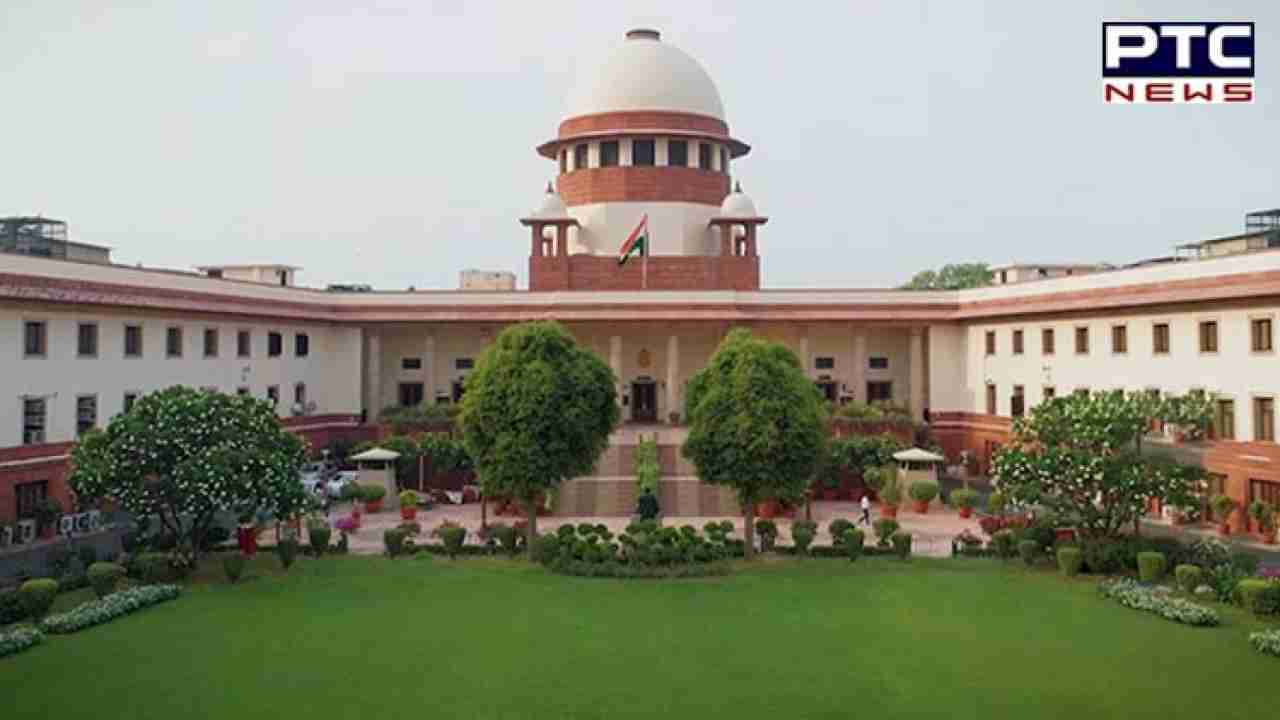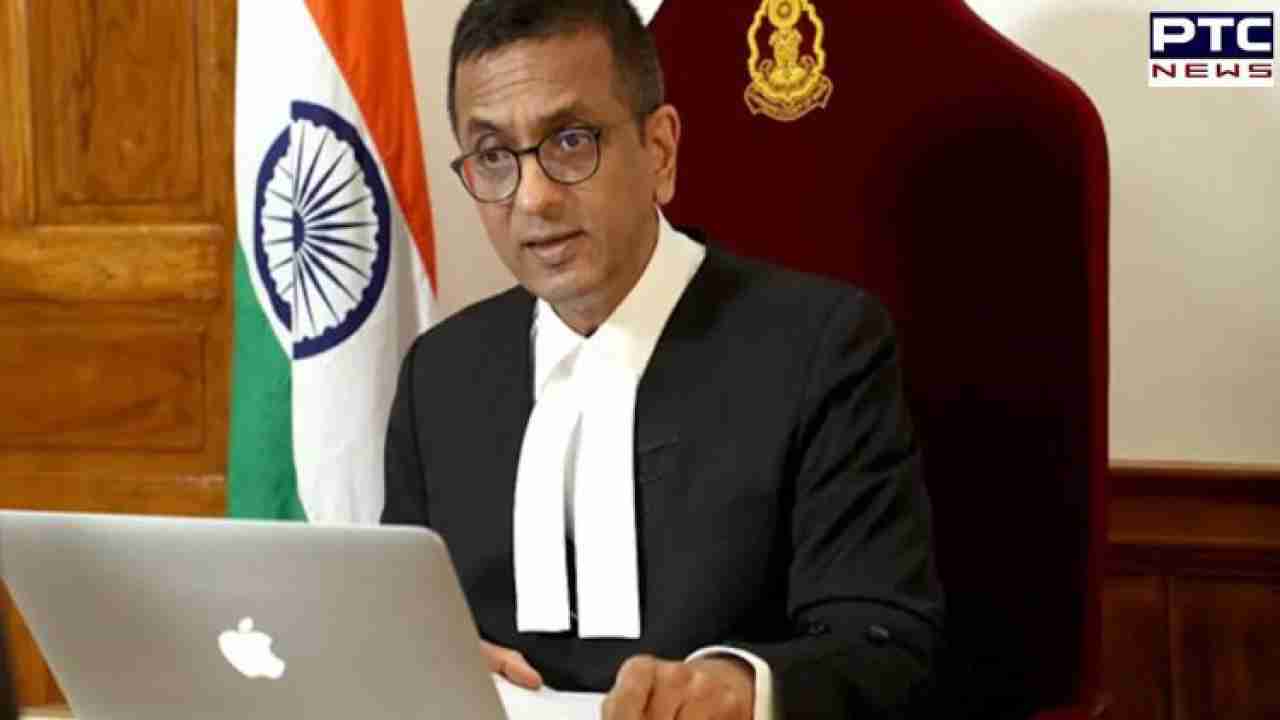

Supreme Court requests updated AIIMS report prior to abortion decision
New Delhi, October 13: The Supreme Court has called for a fresh medical report to assess the health and medical conditions of a married woman who has petitioned for the immediate termination of her 26-week pregnancy. This comes one day after the 27-year-old mother of two was advised to reconsider her decision. The next hearing on this matter is scheduled for October 16, a week after the Court initially granted permission for the abortion but later suspended it due to a divergence of opinion by a two-judge bench.
A three-judge bench led by Chief Justice of India (CJI) Dhananjaya Y Chandrachud deemed it necessary to obtain a fresh medical opinion, as the woman's previous medical reports did not provide information on the impact of the drugs she was taking for her postpartum depression, nor were her medical prescriptions found to be adequate.

The woman had approached the Supreme Court earlier in the month, citing a disorder called lactational amenorrhea as the reason for her unawareness of her third pregnancy. She also mentioned suffering from postpartum depression and poor financial conditions. However, the bench, consisting of Justices JB Pardiwala and Manoj Misra, pointed out that her medical prescriptions lacked details regarding the diagnosis of her medical conditions, the nature of her ailment, and the reasons for the drug prescriptions.
The bench stated that the prescriptions raised doubts about their genuineness and indicated the absence of a proper diagnosis. Therefore, the Court decided to call for a comprehensive report from a panel of doctors at the All India Institute of Medical Sciences (AIIMS). This report would aim to understand the petitioner's health conditions, the impact of the drugs on her pregnancy, and the potential effect on the fetus.
_cd81b1fe814b863fecbbd57392b99058_1280X720.webp)
The Court's order specified, "The AIIMS board will give a report on whether the fetus is suffering from any substantial abnormality so as to place the matter beyond any doubt... The report shall indicate whether the continuance of pregnancy to full term by the petitioner would be jeopardized by the drugs prescribed to her. The report shall also suggest if there can be alternative medication consistent with the pregnancy to neither jeopardize the health of the petitioner nor the health of the fetus."
On the previous day, the bench had given the woman 24 hours to reconsider her request for an immediate abortion, emphasizing the rights of the unborn child in cases of abortion. The bench expressed its concern for the child's rights and stated, "We cannot kill the child." The woman's lawyer, Amit Mishra, and additional solicitor general Aishwarya Bhati were asked to relay the Court's preliminary views to the woman and return with her response.
The matter was referred to the three-judge bench after a previous bench of two women judges delivered a split verdict on the Centre's plea to recall an order that had allowed the married mother of two to terminate her pregnancy. Justices Hima Kohli and BV Nagarathna had initially permitted the woman to end her pregnancy but later disagreed on whether the abortion should proceed after a medical report sought the Supreme Court's approval.
On the subsequent day, ASG Bhati informed the Court that the woman remained steadfast in her decision to proceed with the abortion, despite the government's plea to recall the order, citing the legal framework in India that restricts abortion after 24 weeks unless there are significant threats to the life or well-being of the woman or substantial fetal abnormalities.
Bhati asserted that the current dispute should not be framed as "pro-choice vs. pro-life" since India has a "pro-choice" law in the form of the Medical Termination of Pregnancy Act, permitting all women to abort pregnancies up to 20 weeks. Vulnerable women, such as rape survivors, minors, and mentally incapacitated women, can undergo abortions up to 24 weeks under the law, with no cut-off if the pregnant woman's life is at risk.
_6abd3401c459ab3534ba48c442b8f2c0_1280X720.webp)
The bench agreed that the issue of whether a fetus can be considered as life outside the womb could be debatable. However, this did not need to be argued further in view of the provisions of the MTP Act, which has already addressed the matter.
Amit Mishra, the woman's lawyer, explained that she had been suffering from postpartum psychosis and had been under the care of a psychiatrist since the previous October. He noted that the woman had attempted suicide and harmed her children due to her vulnerable mental state. He also stated that there was a medical opinion indicating that the drugs she was taking could be harmful to the fetus.
Upon reviewing the woman's medical prescriptions, the bench found that they did not specify how she had been diagnosed with postpartum depression or psychosis, casting doubt on the authenticity of these documents. Therefore, the bench concluded that AIIMS should investigate the duration of her medication and its impact on both the fetus and her health.
_314b2c6146b65a1f1ec33e3b63e59a18_1280X720.webp)
The bench also acknowledged that India has a progressive abortion law and commented, "We are far ahead of many other countries. We have a very liberal and forward-looking law."
India's Medical Termination of Pregnancy Act was initially enacted in 1971, allowing pregnancy termination only up to 20 weeks. The law initially applied only to married women, except in cases where court orders were involved.
The 1971 law was insufficient for contemporary needs and advancements in medical science. As a result, women, including rape survivors, mentally incapacitated individuals, and those with unwanted pregnancies due to contraceptive failures, sought court approval to terminate pregnancies beyond the prescribed 20-week limit.
In 2021, the Act was amended to allow both married and unmarried women to access safe abortion services for up to 20 weeks. Between 20 and 24 weeks, women can terminate their pregnancies due to mental anguish, rape, assault, health complications, and other reasons.
Recent cases before the Supreme Court have highlighted the complex legal landscape and obstacles women face in accessing safe and legal abortions. In various judgments, the Court has upheld women's rights to reproductive and decisional autonomy. In September 2022, the Court ruled that the rights of reproductive autonomy, dignity, and privacy under Article 21 extend to unmarried women, granting them the right to choose whether or not to bear a child on equal footing with married women. In August of the same year, the Court stressed the importance of urgency in handling pregnancy termination cases and urged all courts to grant immediate hearings for such cases.
Also Read: Chandigarh: Free Civil Services coaching classes from Nov 2 | Check Details
- With inputs from agencies
